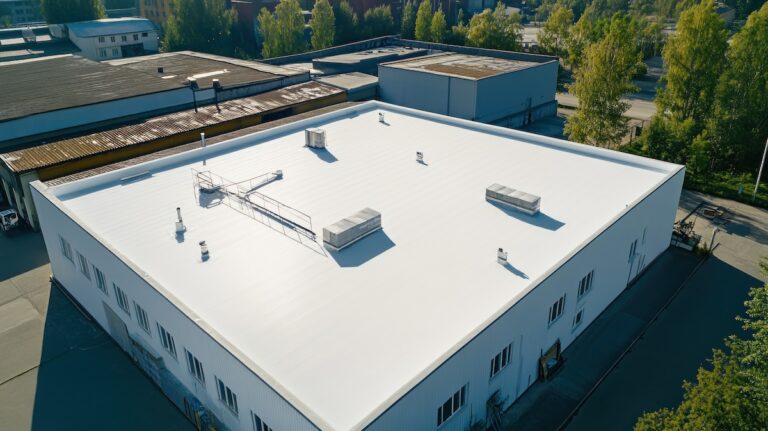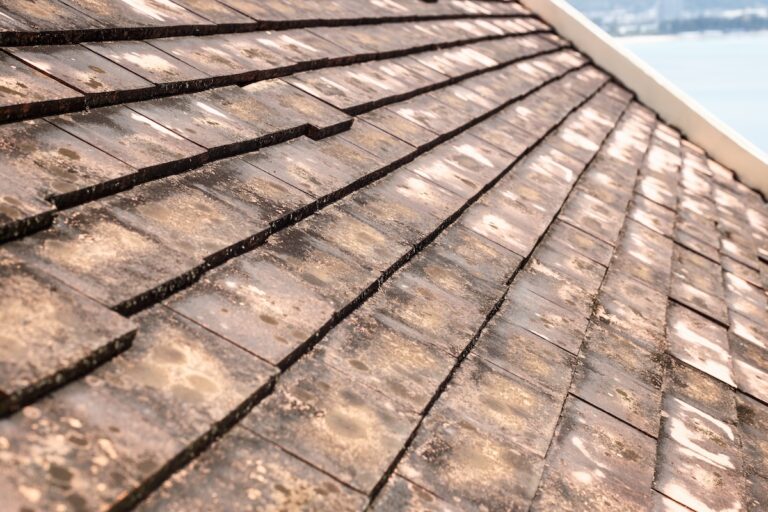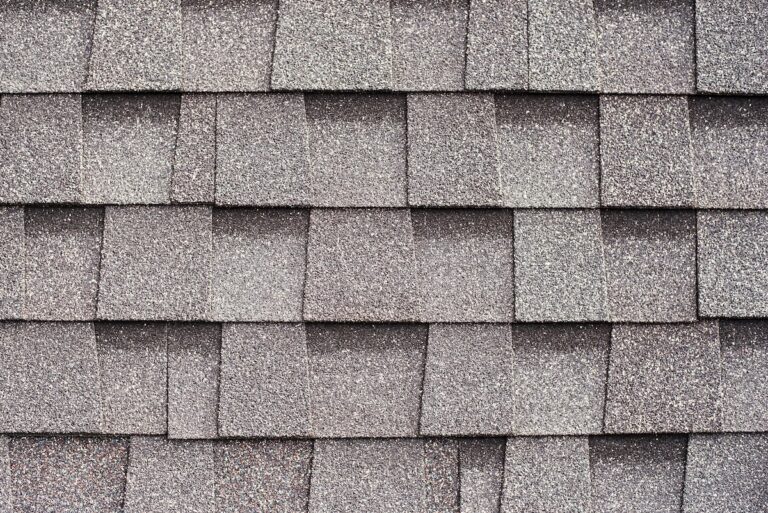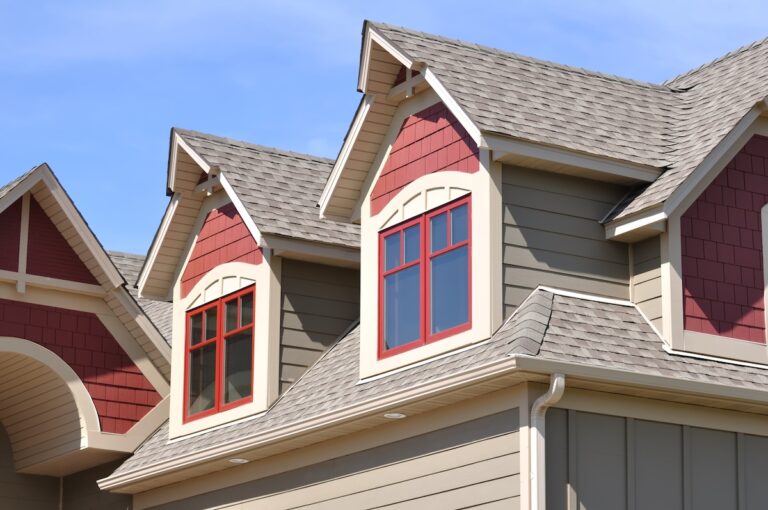If you’ve ever filed a claim form with an insurance company after a storm for roof damage on your property, you might have been surprised that the money you received didn’t cover the replacement cost and improvements. The reason was that your roof depreciated in value. Property owners should consider the actual cost value when filing insurance claims.
What Is Depreciation?
It may surprise you to learn that your roof is a separate asset from your house and property. While a residential rental property may go up in valuation, its roof will depreciate over time, resulting in a lower roof depreciation value.
Since the lifespan of a roof is about 27.5 years, on average, roofs will fall in value with age. Depreciation costs are the amount that your roof depreciates from when it was a new roof until you make a damage claim during the recovery period. This is the actual cash value of your roof.
Roofs, in this example, depreciate at a rate of 5 percent each year from installation. The value won’t change much in the first year of age. By the second year after installation, though, the roof will begin to show more depreciation than in later years as the roof will begin to show more wear and tear.
Maintenance and obsolescence will also factor into roof depreciation. A well-maintained roof will depreciate less than the one you ignore until damage occurs. Obsolescence refers to roofing materials that are out of date or no longer sold.
Understanding Roof Depreciation: Impact on Insurance Claims and Rates
Roof Depreciation:
The gradual reduction in a roof’s value over time due to aging, wear and tear, and environmental factors.
Insurance Claims:
- Depreciation Calculation: Insurers calculate roof depreciation to determine the Actual Cash Value (ACV) by subtracting depreciation from the Replacement Cost Value (RCV).
- Policy Types:
- ACV Policy: Covers the depreciated value, leaving the policyholder to cover the difference for replacement.
- RCV Policy: Covers the full replacement cost, but payment may not be provided upfront.
Insurance Rates:
- Rate Adjustments: After 20 years, insurers may increase rates, require roof replacement, or cancel coverage based on roof condition.
Roof Condition and Age:
- Wear and Tear: All roofs deteriorate over time, with proper maintenance crucial to minimizing depreciation.
- Depreciation Rate: Typically 5% per year from installation, with slower depreciation in the first five years.
Roof Materials:
- Lifespan Variations:
- Asphalt shingles: 15–30 years
- Clay tile: 50+ years
- Metal: 20–50 years
- Wood: 30+ years
Roof Age and Insurance

Because your roof was worth more when it was new than 20 years later after damage, wear, and tear, your insurance company will use the depreciation rate to determine its actual cash value and how much it will pay you to complete the claim process. The actual cash value repayment reflects the remaining value of the roof after accounting for depreciation. Your home or business insurer will look at how much the roof cost originally, its decrease in worth, and the cost to replace it today.
Actual Cash Value
The actual cash value, or ACV, of a roof refers to what the roof expense when it was new. It is calculated by considering the actual cost minus depreciation. It is the starting point for a roof’s valuation.
Replacement Costs
The national average cost for roof replacement is about $8,000, but roof damage repair in most cases is several thousand dollars, even if it doesn’t call for replacing the entire roof. The replacement cost value RCV refers to the total cost necessary to rebuild or replace a home using current market prices for the same materials.
Recoverable Depreciation
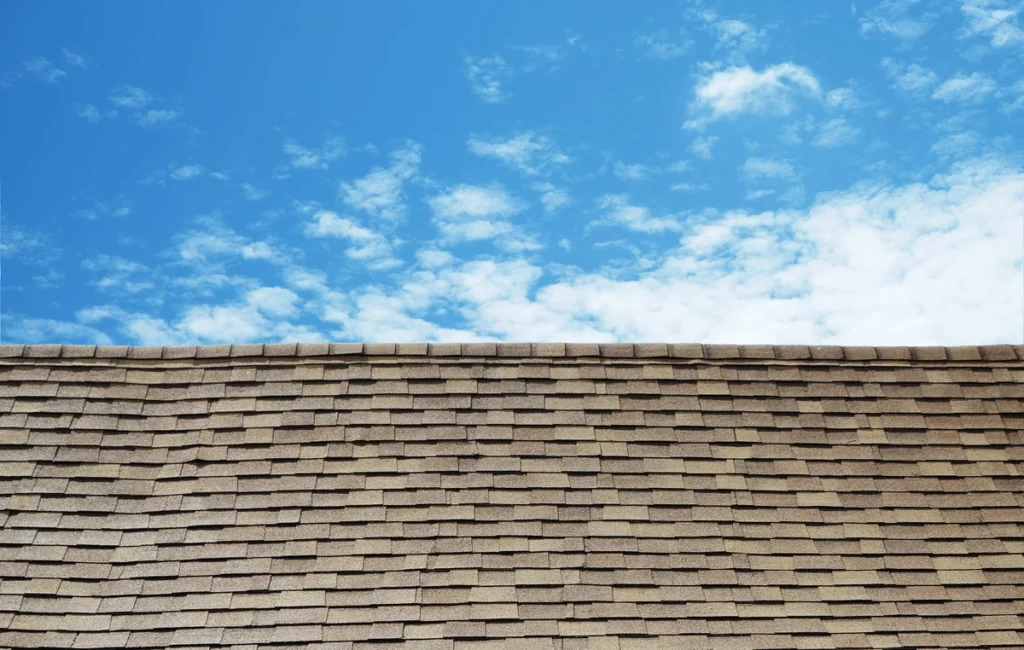 This term refers to the difference between your roof’s cost when new and its replacement cost. A recoverable depreciation payment is the amount paid to the policyholder after the initial ACV payment. An insurance company will use recoverable depreciation to distribute the insurance payments in increments. Usually, the first payment is toward the roof’s cash value that will be used to repair or replace the roof. Any second payment would be toward recoverable depreciation costs.
This term refers to the difference between your roof’s cost when new and its replacement cost. A recoverable depreciation payment is the amount paid to the policyholder after the initial ACV payment. An insurance company will use recoverable depreciation to distribute the insurance payments in increments. Usually, the first payment is toward the roof’s cash value that will be used to repair or replace the roof. Any second payment would be toward recoverable depreciation costs.
Non-Recoverable Depreciation
Non-recoverable depreciation is the depreciation from the ACV of a roof that is not eligible for reimbursement under your insurance policy after roof repairs or replacement. Understanding how to recover depreciation can help maximize insurance payouts. Some insurance companies do offer roof replacement cost coverage minus a deductible expense.
Federal Legislation
Recent legislation is making it easier for a business to replace the roofing for commercial buildings. The Tax Cuts and Jobs Act of 2017 allows bonus depreciation of 100 percent for a new roof if installed before 2023, 80 percent for 2023, and 60 percent for 2024. Additionally, the recoverable depreciation clause in insurance policies allows for additional compensation beyond the actual cash value, which can be crucial for significant assets like roofs. This legislation makes repairs or commercial improvements to a building, such as a new and affordable roof.
Contact a roofing contractor to find out if your roof repairs are covered by this legislation or if your business will qualify for this deduction. The contractor can meet for a consultation at the building that needs repairs. Request a meeting to learn more about the expenses involved and whether receipts will be needed for an insurance claim, for example.
Why a Roof Depreciates
Roofs will not keep the same valuation because of the wear they face and the fact that roofs are replaced about every 30 years. Calculating recoverable depreciation involves assessing the value lost over time based on the roof’s expected lifespan and damage. It’s one of the expenses of owning property. Building owners adding a new roof could list it as a capital improvement to their rental property.
The best way to get a fair valuation is to document the condition of your roof at your home or business each year and date them. Save receipts from new roof installation and maintenance.
Insurance Coverage

The depreciation calculation is done when an insurance claim is made for damage. Homeowners must follow specific steps to claim recoverable depreciation, including providing documentation and meeting filing deadlines. In most cases, an insurance company starts with the ACV and calculates depreciation, subtracting it from the ACV.
If you have ACV home insurance coverage, you won’t be penalized for the depreciation, but because the roof is older, replacement costs will be higher. You will pay your deductible and the difference between the insurance payment and the cost to replace the roof.
If you have a home insurance policy that covers the replacement cost of your roof, you will pay the deductible amount, but the insurance company will cover the remaining balance. This policy comes at a higher expense.
If you are trying to decide whether to pay for replacement cost value coverage, contact an insurance agent or a roofing service to get a better understanding of whether RCV coverage is worth the expense.
Also, consider the age of your roof. Using the straight-line method of depreciation, a $20,000 roof that is a year old will still be worth about $20,000, for example, but a $20,000 roof that is 20 years old may be worth less than $5,000.
Contact the Experts
If you find the claims process to be confusing, contact a roofing services company. The policyholder typically receives the recoverable depreciation check, but it may go directly to contractors if they are involved in the repairs. Request a consultation about the repairs needed. In most instances, they will help you navigate the claim process to replace your roofing as an improvement or repair your property as a business tax deduction.
Don’t wonder if property improvements and costs incurred are covered by your policy, what your deductible is, or whether your bills will be covered and paid. Talk with a roofing contractor as well as an insurance agent today.


